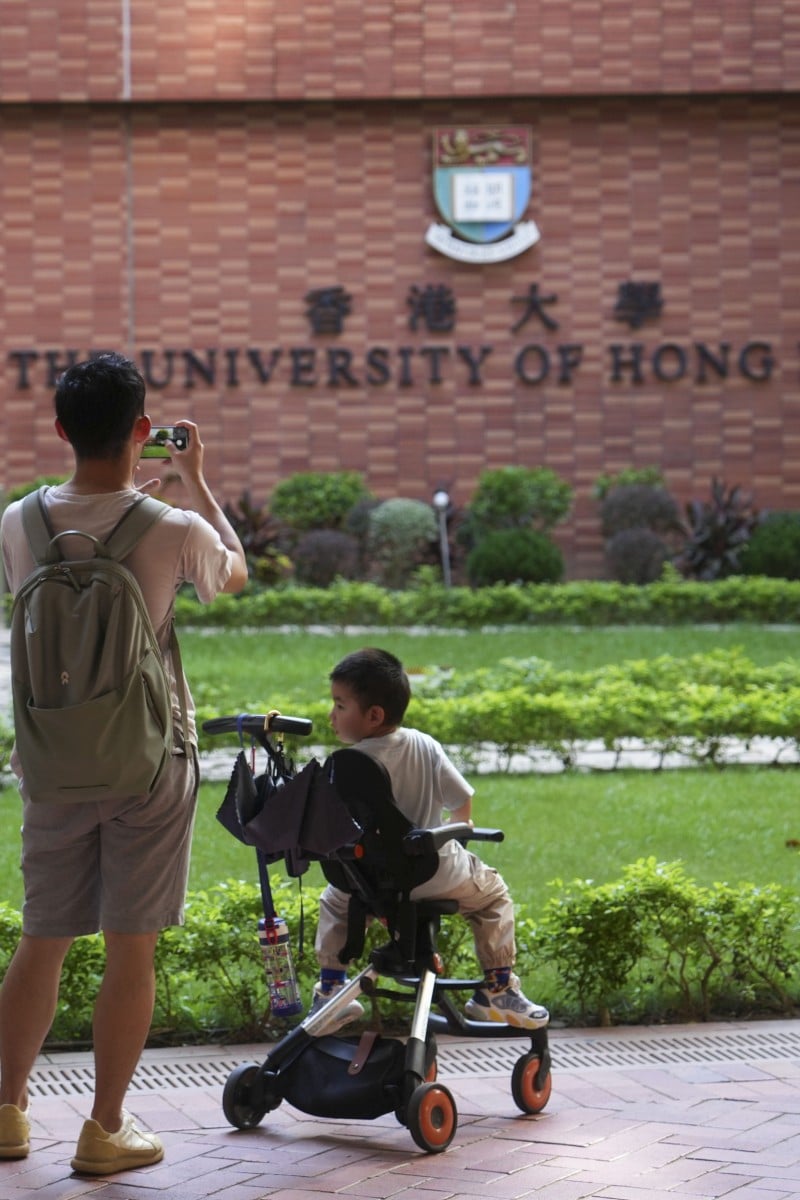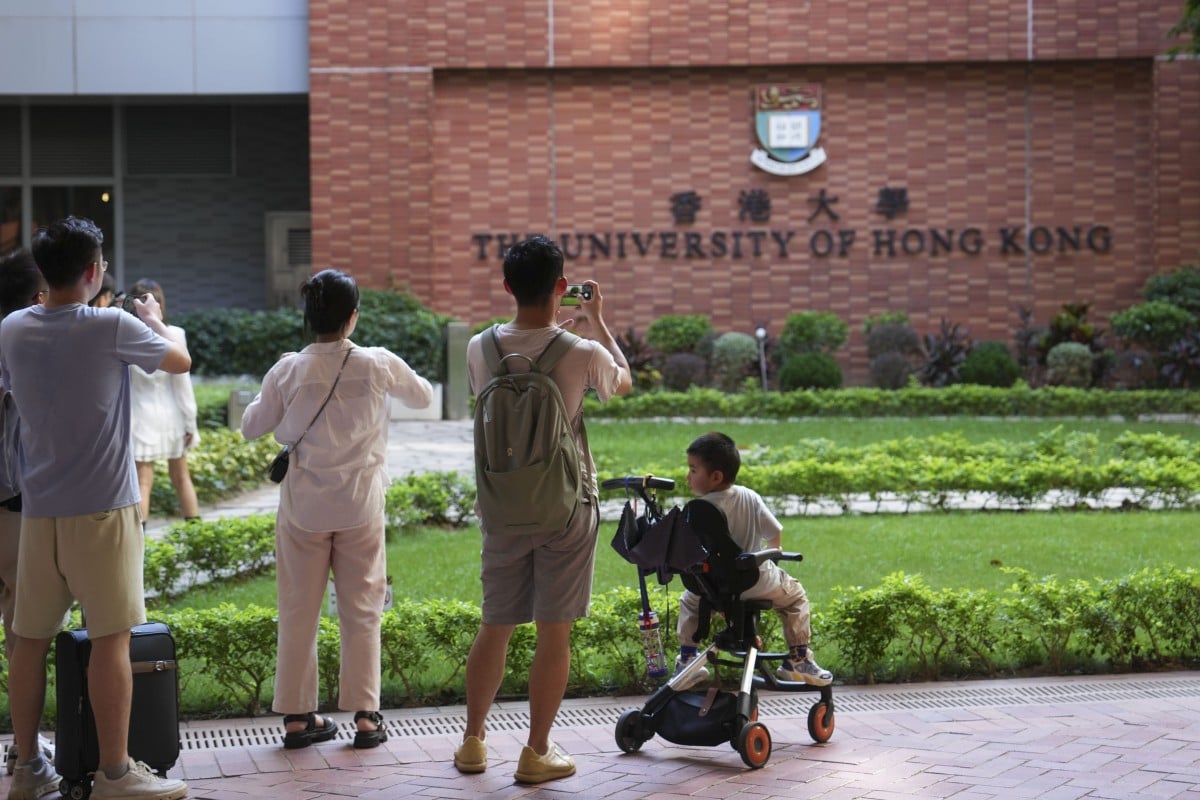
Face Off: Should Hong Kong require a minimum stay to be a ‘local’ university student?
Each week, two of our readers debate a hot topic in a showdown that doesn’t necessarily reflect their personal viewpoints
 Mainland Chinese parents have been accused of exploiting Hong Kong’s talent schemes to access subsidised university tuition for their children. Photo: Elson Li
Mainland Chinese parents have been accused of exploiting Hong Kong’s talent schemes to access subsidised university tuition for their children. Photo: Elson LiIf you are interested in joining future Face Off debates, fill out this form to submit your application.
For: Sophia Ling, 13, German Swiss International School
Hong Kong should require a minimum period of residency for students to qualify for a “local” spot in university admissions. This rule is necessary to protect limited public resources, maintain fairness and align with international practices.
If a student is classified as “local”, they are eligible for subsidised university tuition fees. They can get these benefits as long as they have a dependent visa – even if they only recently moved to Hong Kong.
Some mainland Chinese professionals have exploited Hong Kong’s talent schemes to obtain dependent visas for their children, who have not spent much time in the city. When they get a subsidised spot in the city’s universities, they push out candidates who have grown up in Hong Kong their whole lives. This is unfair. Many locals feel that the system is being gamed.
Every year, there are only 15,000 publicly funded first-year spots, despite a growing number of qualified applicants. It is only right to prioritise those who have spent a reasonable amount of time in Hong Kong, studying in its school system and contributing to its society.
Deep Dive: Hong Kong’s Top Talent Pass Scheme brings top grads, but many can’t find jobs
Other countries already have similar rules. In the UK, students must have been residents for at least three years to be eligible for local university fees. Singapore has clear distinctions between the benefits for citizens, permanent residents and international students.
Why should Hong Kong’s institutions, which rank among the best in Asia, be so easy to exploit?
Some argue that a minimum stay requirement discourages global talent from relocating to Hong Kong. However, this policy is about the fair distribution of public resources. If parents want their children to access taxpayer-funded university education, they should be willing to settle in Hong Kong for a reasonable period. This reinforces the goal of the city’s talent schemes, which were intended to attract skilled professionals who will be long-term contributors to Hong Kong, not short-term opportunists.
The city’s education system is an investment of resources in its youth. This investment is lost when local students are displaced by newcomers who were not part of the city’s system.
If a student wants a subsidised spot in Hong Kong’s world-class higher education, they should spend time living here and being part of the local community.
Against: Charis Chan, 16, Malvern College Hong Kong
Requiring a minimum stay for a student to qualify for “local” university tuition fees in Hong Kong decreases the number of talented, diverse individuals we can welcome to the city. These students would add more perspectives to class discussions. Thus, this requirement for “local” students should not be implemented.
If these candidates already have a dependent visa to live in Hong Kong, they are likely to contribute to the city’s diversity. Universities should welcome these students and integrate them into the community. According to an article on the website, Top Universities, “A multicultural learning environment makes it the ideal setting for increasing students’ cultural awareness and fostering their understanding and appreciation of those who come from a different background to their own.”
As a place with diverse cuisines, global companies and international events, Hong Kong should do what it can to encourage this cultural vibrancy to grow.
Some people might argue that newly arrived students on dependent visas take valuable resources away from candidates who have spent their whole lives in Hong Kong. But these critics do not acknowledge that even newly arrived students must still sit for Hong Kong’s university entrance exam and compete for strong scores in the same way as everyone else.
Should students in Forms One to Three learn an additional foreign language?
The question of fairness is important in this discussion. If all the candidates take the same test and are measured against the same benchmarks, then it should not matter how long they have been living in Hong Kong.
In fact, the city has a lot of resources that can be shared with students from other parts of the world. Perhaps we should consider giving the “local” student benefits to all of Hong Kong’s university students, regardless of where they come from or what visa they hold.
In a university, everybody strives to learn and gain knowledge, and there should be equal resources provided to every student. This would help the city welcome a wider range of students from different cultural backgrounds. Especially since Hong Kong is such an expensive city to live in, providing lower tuition fees will reduce the financial barriers for bright students everywhere.
Requiring a minimum period of residency for “local” students will force Hong Kong’s universities to miss out on smart candidates. Losing a few of them might not seem like much, but the ideas they can bring may have other long-term effects on the city.
